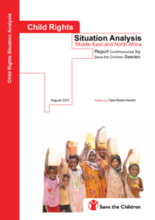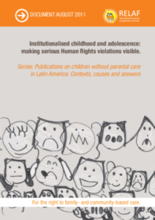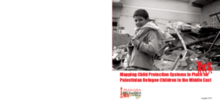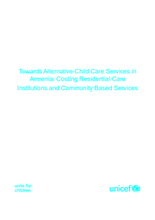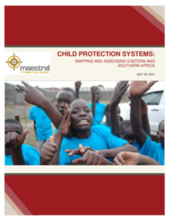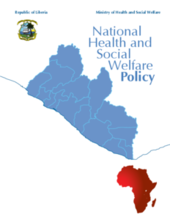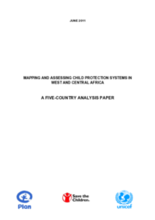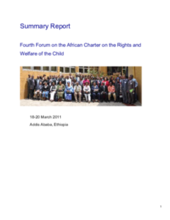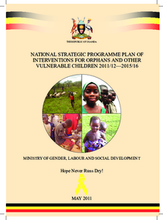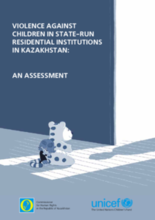Displaying 1421 - 1430 of 1797
This report provides an overview of children's rights issues in the Middle East and North Africa.
This paper, produced by RELAF, is part of a series of publications on children without parental care in Latin America: Contexts, causes and answers. This document, and others in the series, pertains to the broad topic of children without parental care and examines the particular situation of institutionalised children.
This report aims at describing and analysing existing protection mechanisms available for Palestinian refugee children with a focus on Lebanon and the occupied Palestinian territory (oPt).
This recent study by UNICEF in Armenia costed different types of residential care and community based services.
This report outlines the global context that the Eastern and Southern Africa Region (ESAR) is operating within, with respect to child protection.
To achieve Liberia’s vision of becoming a middleincome country, the goal of this policy is therefore to improve the health and social welfare status of the population of Liberia on an equitable basis.
The following recommendations were made to the African Committee of Experts on the Rights and Welfare of the Child in relation to children without appropriate care.
This plan is expected to guide effective and coordinated national responses to prevent and/or alleviate vulnerabilities of children in Uganda over the next five years.
This study on violence against children in state-run residential institutions in Kazakhstan was conducted under the national Office of the Commissioner for Human Rights and UNICEF. Data was collected from six different types of state run- residential institutions for children in 3 regions using a multi-methods approach, including surveys with children ( 9-18 years old) and staffs, and interviews with young people (17-23 years old) who had left the care of these institutions.

